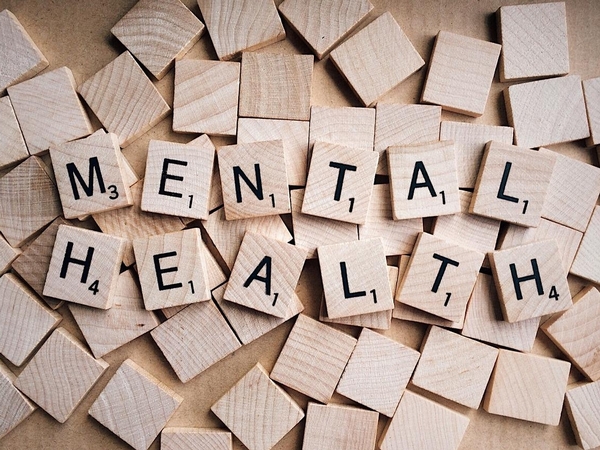Empowering students with language-based learning differences

Siena Blog



The Siena School Blog
Discover, Learn, Celebrate, and Empower
Welcome to Siena's blog, your source for helpful, cutting-edge resources tailored to teachers, parents, and other advocates in the learning differences community. We are dedicated to providing a wealth of curated knowledge spanning various topics, ranging from dyslexia advocacy and awareness to classroom teaching strategies, heritage month profiles, and social and emotional health.
Social Media and Mental Health

Mental Health Awareness Month is here, and let’s start with a fact: 46% of Americans will meet the criteria for a mental health condition.
The COVID pandemic has indeed brought on the topic of mental health, as it has been detrimental to some and posed particular mental health challenges. However, research shows that symptoms of mental health—mainly depression and anxiety—have shown increasing trends even before the pandemic.
Given its ubiquity, social media is closely tied to mental health issues, particularly in tweens and teens. Social media usage has both positive and negative effects for young people, so it’s important for parents to be aware of how multifaceted social media is. Let’s take a look at what may be causing these trends to continue rising, as well as some strategies for mental health and social media use that can be implemented to help build resilience.
Social Media and Mental Health
Derek Thompson’s recent article on why teens are so sad refers to four different factors that may have contributed to this increase in anxiety, depression, and other mental health issues:
Social Media
Although there are many benefits to having social media and being connected to lots of information, there are also serious detriments if it is not monitored or used properly. In a video on the addiction of social media and technology in general, writer and speaker Simon Sinek notes that the brain is permanently altered when there is too much stimulation from different modalities of technology (e.g., phones or computers). These permanent changes can cause slower brain function. Thompson’s article states that social media may not be a “rat poison” on tweens’ and teens’ mental health but rather a contributing factor that may lead to higher rates of depression and dependency.
Decrease in Sociality
Social media, as well as many months in isolation during the height of the pandemic, have limited the amount of socialization that people are doing. Moreover, even when some school and other social events opened back up last year, distancing and other restrictions required young people to learn new ways of socializing.
Social media has replaced certain activities, such as hanging out with friends, obtaining a driver’s license, or engaging in extracurricular activities, which can lead to increased feelings of loneliness and isolation.
Stressful World (and More News About It)
Unquestionably, our world over the last few years has been very stressful. Unfortunately, there is also more exposure to hearing of this news due to social media and the immediacy of the internet. Our tweens and teens are reading more about the things that go on in our world, and this causes more levels of stress, which in turn can cause increased amounts of anxiety, depression, and pessimism.
This is especially true right now, due to the recent tragedy in Texas at Robb Elementary School. News such as this mass shooting can be extremely hard to process, especially when we are constantly being updated. Creating space away from the news as well as utilizing resources such as the ones listed below are helpful in checking in with each other and our own mental wellness.
- Talking to Children about Violence: Tips for Parents and Teachers (National Association of School Psychologists)
- 10 Strategies for Talking to Children about School Shootings (Psychology Today)
- Helping Your Children Manage Distress in the Aftermath of a Shooting (American Psychological Society)
- Talking to Children About Tragedies (American Academy of Pediatrics)
Modern Parenting Strategies
Yes, it can be hard to manage our children and teens and protect them from harm. However, certain modern parenting strategies could be more of a hindrance, rather than a help. As parents, our reaction may be to accommodate a child dealing with an anxiety-provoking trigger (such as a dog) by helping them to avoid anxious situations. Although potentially helpful in the short term, avoiding anxious situations could enable the anxiety and also keeps the child from building resilience, which is so necessary for helping our children be successful as they grow up.
Instead, parents might encourage their children to work with a counselor or therapist to devise strategies to label their emotions, validate feelings, communicate and process what is in their control, as well as come up with coping mechanisms to handle stressors. Many of these conversations are helpful when implemented in the home as well! Communication with tweens and teens is key to understanding them, interacting with them, and helping them develop emotionally and persevere through adversity.
Strategies for Building Success and Social Media
With the trends of mental health symptoms increasing, more anxiety and depression amongst our children, and no end to the technology in our lives, how do we help protect our kids without enabling them? This seems like an impossible task!
This article from educational psychologist Michele Borba lists seven skills for building success versus building struggle in our children and teens. Ideally, we as parents are being less accommodating, creating opportunities for exposure to triggers or stressors, having them fix their problems on their own (with guidance) and building empathy and strategies to help them navigate. The seven skills are:
- Self-confidence
- Empathy
- Self-control
- Integrity
- Curiosity
- Perseverance
- Optimism
Ultimately, Borba writes, the idea is to help “boost mental toughness, resilience, social competence, self-awareness, and moral strength.”
It remains important as parents that we monitor social media usage as well as technology overall. Encouraging more time with friends and family, getting outside, participating in extracurricular activities, and limiting the amount of screen time is ideal. Social media contracts (such as this one) may be useful for setting up boundaries. Always communicate with your child about the potential harm of social media and balancing screen time with social time.
Taking care of ourselves and our children is of utmost importance during this time. Communication amongst the family, setting appropriate boundaries, and having coping strategies for all will be so helpful in creating healthy habits and building resilience in everyone.
For related resources, see Devorah Heitner Raising Digital Natives, as well as Delaney Ruston’s film Screenagers: Growing Up in the Digital Age. And, see Siena’s blog for more posts about social and emotional health, including some lessons in self-care and tips for socializing.

